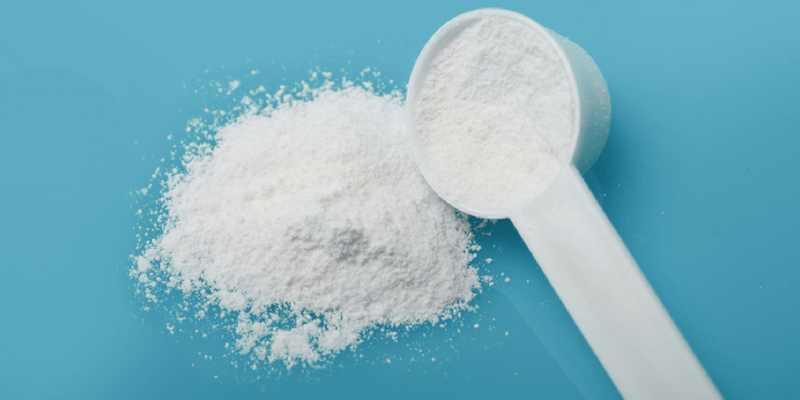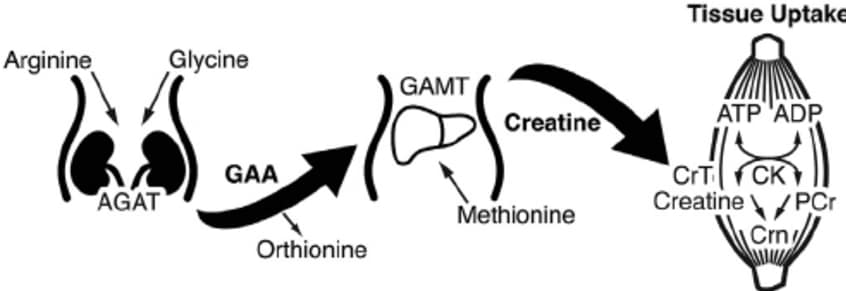The topic of nutritional supplements is controversial, and creatine, in particular, remains one of the most extensively studied supplements currently available to us.
Nevertheless, with regard to athletic performance, creatine has continually proved itself to be one of the most effective and safe nutritional supplements to increase strength, muscle mass and performance.
To date, there have been hundreds of studies conducted on creatine, and they have included such areas as the ways to maximize creatine storage in muscle, which types of exercise may obtain the most significant benefit from supplementation, the potential medical uses of creatine, and the long-term safety and efficiency of creatine supplementation.
Approximately 70% of these studies have shown positive results from creatine supplementation in the chosen areas. Also, safety reviews show that creatine is safe and well tolerated by most individuals in the studies.
The purpose of this article is to know what is creatine and what does it do and highlight some valuable information that should be considered when supplementing creatine and to provide the best practices for doing so.
Before digging in, as a valued reader of the blog, I’d like to extend you an invitation to our upcoming and totally FREE online training workshop:
‘The Proven Nutrition Strategies of Elite Trainers’.
This workshop is for you if you want to finally learn the best nutrition protocols and evidenced-based strategies to help your clients achieve life-changing results.
This workshop is our most complete training on how to make nutrition coaching easy and profitable.
All you need to do to attend is click here to register your free spot.

How Does It Work
Around 95% of creatine is found in muscles, with the remaining 5% seen in the brain and testes.
Creatine is a naturally occurring amino acid-like compound, and around 2/3 of it is stored as PCr with the remainder stored as free creatine.
The total amount of creatine in the body is known as the total creatine pool (PCr + Free creatine).
The body can store up to 160g of creatine, but for the average person of 70kg, this tends to be around 120g.
The body breaks down and uses around 2% of creatine from our stores daily, and turns it into creatine in the muscle that then gets excreted in urine. The depletion needs replenishing, and the body does this via the foods we eat in our diet and via synthesizing from the amino acids glycine, arginine and methionine.

Those considered to eat a balanced and regular dietary intake can effectively replenish and maintain their creatine stores.
The research has shown the importance and effectiveness that creatine supplementation can have on the creatine phosphate energy system.
This is an energy system your body will put to use in certain types of training. You start out with Adenosine Triphosphate (ATP), and when the energy system is put into action, a chemical reaction occurs where a phosphate (P) splits away, and energy is released. You are then left with Adenosine Di-phosphate (ADP).
This energy system is generally used in short high explosive training and creatine supplementation is typically used to increase the body’s natural stores of creatine. This essentially allows you to work harder by increasing your energy levels from this particular energy source.
The Benefits Of Creatine Supplementation
INCREASED MUSCLE MASS AND STRENGTH
Short-term creatine supplementation has been reported to improve maximal power/strength (5-15%), work performed during sets of maximal effort muscle contractions (5-15%).
Long-term creatine supplementation seems to enhance the quality of training generally leading to 5-15% greater gains in strength and performance. Nearly all studies show that creatine supplementation increases body mass by about 1-2kg in the first week of loading.
INCREASED SINGLE AND REPETITIVE ATHLETE PERFORMANCE
Short-term creatine supplementation has been reported to improve single effort sprint performance (1-5%), and work performed during repetitive sprint performance (5-15%).
ENHANCED GLYCOGEN SYNTHESIS
Recent research also indicated that endurance athletes might also benefit from creatine supplementation. Some studies have shown that creatine loading before carbohydrate loading promotes greater glycogen retention. Fundamentally, this may improve glycogen availability for endurance athletes.
INCREASED WORK CAPACITY
Creatine supplementation has also been shown to improve exercise performance and overall work capacity during various sports. For example, Volek and colleagues reported that creatine supplementation resulted in a significant increase in the amount of work performed during 5 sets of bench press and jump squats in comparison to a placebo group.
ENHANCED RECOVERY
Research has shown that creatine supplementation increased resting and post-exercise creatine levels and PCr content, mean work performed, and total work performed. This indicates that recovery tended to be greater with the use of creatine.
Do You Need Creatine Supplementation
As previously mentioned, we typically store around 120g of creatine, yet are capable of storing up to 150-160g.
It, therefore, makes sense for everyone who wants to enhance the effects of the benefits it can bring, that topping up the total creatine pool and keeping it full is advisable.
Supplementing creatine can increase reserves from 10-40% depending on natural stored levels and the magnitude of performance changes is correlated to this increase in muscle creatine levels.
There is no evidence that muscle creatine levels decrease below baseline after stopping creatine supplementation.
WHAT IS THE BEST FORM OF CREATINE TO TAKE
Most of the studies on creatine supplementation were conducted using pharmaceutical creatine monohydrate in powder form.
There is no data to suggest that any other form of creatine will increase uptake by the muscle or provide any further benefit than creatine monohydrate.
The best raw sources of creatine monohydrate seem to be from Germany (Crea pure) or the United States.
WHEN IS THE BEST TIME TO TAKE CREATINE
The best time to take creatine powder is in the presence of carbohydrates and protein. This is when we will see the highest response of insulin release from the ingestion of these nutrients. We know insulin is a storage hormone, responsible for shuttling nutrients to our muscle, liver and fat cells, thus increasing creatine uptake. The post-workout period is ideal for this.
DO YOU NEED TO LOAD CREATINE
The research suggests that the most effective and fastest way to increase creatine stores is to follow the creatine loading technique (20g for 3 days) followed by 3-5g per day to maintain elevated creatine stores.
SHOULD YOU CYCLE CREATINE
There is no evidence that cycling on and off creatine is more or less effective than loading and maintaining creatine.
ARE THERE ANY SIDE EFFECTS AND IS IT SAFE
Many report an increase in weight and fluid retention. This is mainly due to an increase in total body water, as muscle is made of around 73% water – it is nothing to be concerned about.
To date, no clinically significant and reproducible side effects directly attribute to creatine supplementation, and this includes the long term.
Summary
Creatine is one of the most researched and commonly used ergogenic aids currently available. And rightfully so, it hosts many benefits for athletes and some clinical populations.
Overall, creatine is one of the most effective and safe nutritional supplements currently on the market to increase muscle mass, strength and athletic performance.
Become an elite-level nutrition coach
My team and I have just finished up creating a brand new online training workshop called 'The Proven Nutrition Strategies of Elite Trainers.'
Best part? It costs you nothing. This is your official invite - all you need to do to attend is click here to register.
This free nutrition course is for you if you want to finally learn the best nutrition protocols and evidenced-based strategies to help your clients achieve life-changing results.
Join me and I’ll walk you through the exact steps you need to take in order to get incredible client results, boost your confidence and build your business with proven nutrition coaching strategies.

